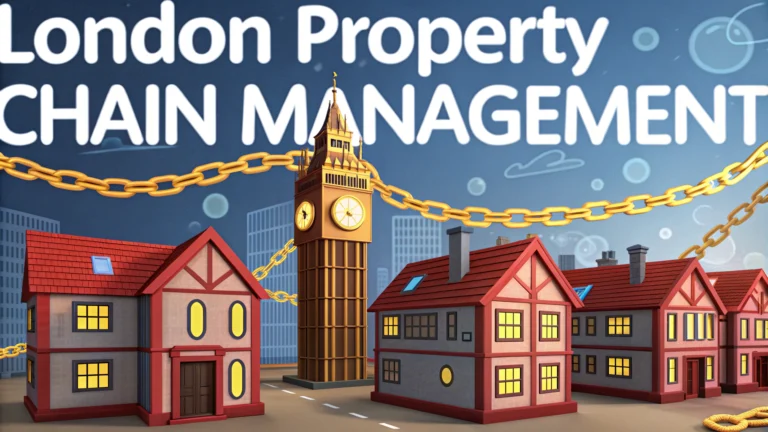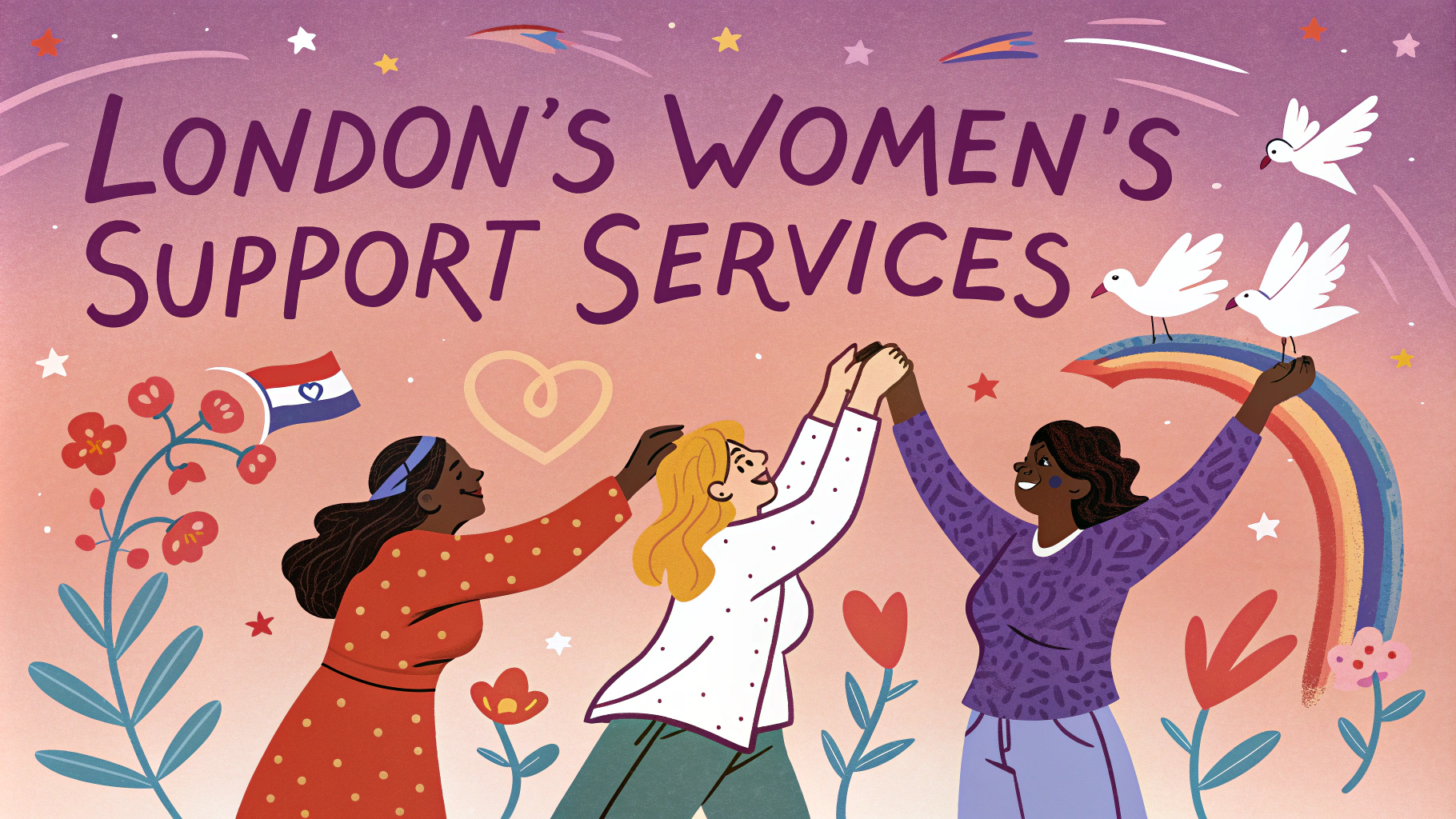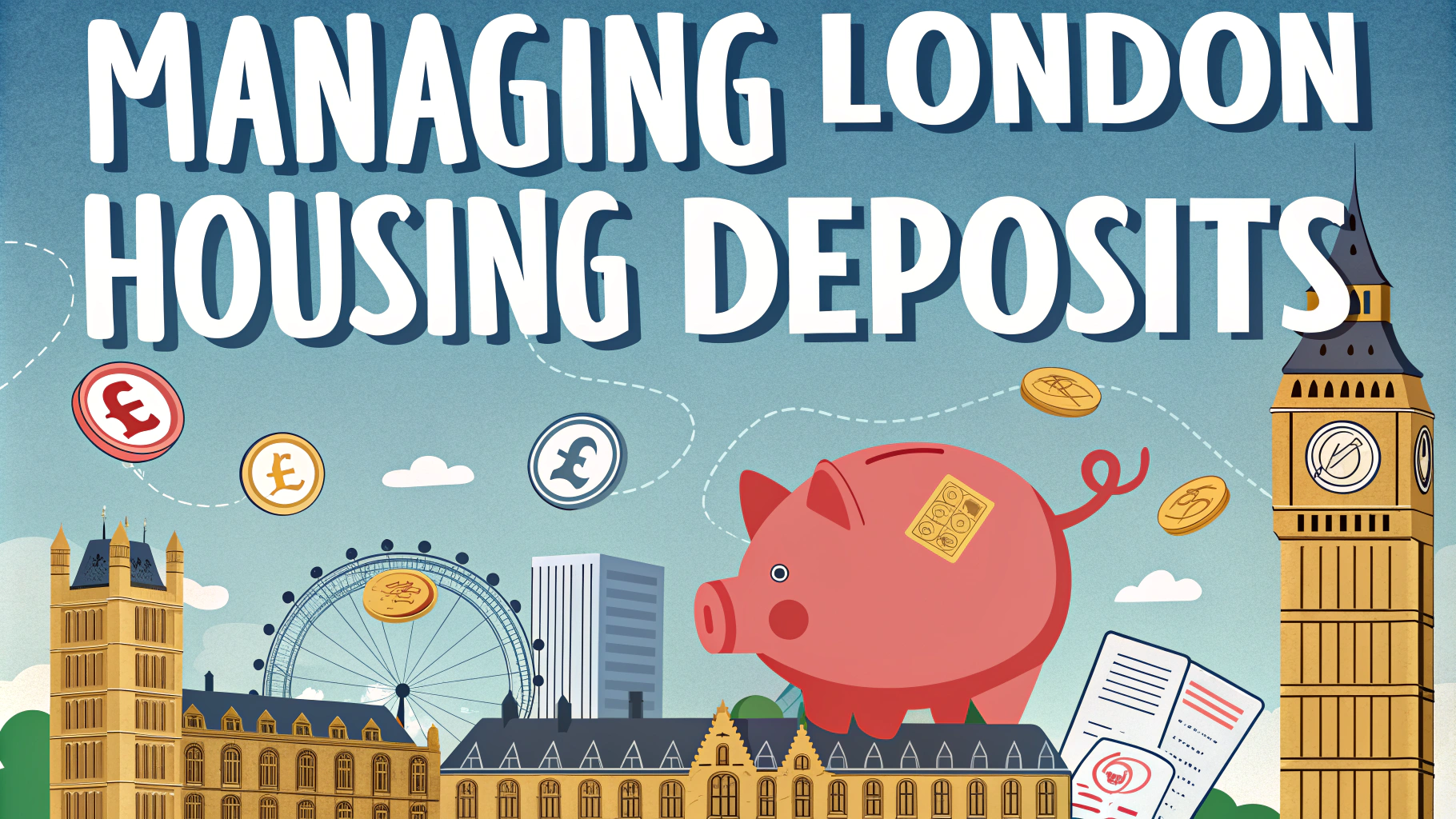Managing a property chain in London presents unique challenges due to the city’s dynamic real estate market and diverse property types.
Property chains occur when multiple buyers and sellers are linked together, with each transaction dependent on the others completing successfully.
This guide outlines practical strategies for handling property chains whether you’re moving to or from London, helping you navigate potential pitfalls and reduce stress during the process.
Understanding London Property Chains
- Average chain length in London: 3-4 properties
- Typical completion time: 12-16 weeks
- Chain break risk: 30% higher in London vs. rest of UK
Common Chain Issues in London
London’s high property values often lead to more complex mortgage arrangements and longer processing times.
Foreign buyers and investors can impact chain stability due to different timezones and international banking requirements.
Listed buildings and leasehold properties require additional checks and approvals, potentially causing delays.
Tips for Buying in a London Chain
- Secure a mortgage agreement in principle before making offers
- Consider chain-free properties like new builds or properties from motivated sellers
- Have a solicitor experienced in London property law ready to act
- Keep funds readily accessible in a UK bank account
Breaking or Avoiding Chains
Consider these options to minimize chain complications:
- Sell first and rent temporarily
- Use a bridging loan (typical rates: 0.5-1.5% per month)
- Look for chain-free properties
- Consider sealed bids for popular properties
Key Contacts and Resources
| Service | Contact Details |
|---|---|
| Property Ombudsman | 0300 555 0333 |
| Land Registry | 0300 006 0411 |
Managing Chain Communications
- Appoint a single point of contact (usually your solicitor)
- Request weekly updates from all parties
- Keep a log of all communications
- Use email for important decisions to maintain a paper trail
Next Steps for Success
Book a meeting with a local estate agent who specializes in your target area in London.
Prepare all necessary documentation before entering a chain (proof of funds, ID, mortgage agreement).
Consider taking out home buyers protection insurance to cover costs if the chain breaks (typical cost: £50-100).
Financial Preparation
Having finances in order is crucial for smooth chain progression in London’s competitive market.
- Build in a 10% contingency fund for unexpected costs
- Consider exchange rate fluctuations if buying from abroad
- Research stamp duty implications and timeline requirements
- Set up UK banking relationships early if moving from overseas
Legal Considerations
Essential Checks
- Planning permission history
- Building regulations compliance
- Leasehold terms and service charges
- Rights of way and restrictive covenants
Timeline Management
Create a realistic timeline accounting for London-specific factors:
- Local authority searches (3-4 weeks in London)
- Mortgage valuation surveys (1-2 weeks)
- Leasehold management pack requests (2-3 weeks)
- Exchange to completion window (1-2 weeks typical)
Securing Your London Property Journey
Success in London’s property chains requires thorough preparation, clear communication, and professional support. Maintain flexibility in your approach and keep contingency plans ready.
Remember that each link in the chain affects all others, so staying proactive and responsive throughout the process is essential for a successful outcome.
Consider joining local property forums and networks to gain insights from others’ experiences and stay informed about market conditions affecting your chain.
FAQs
- What is a property chain in London and how does it work?
A property chain occurs when multiple property transactions are linked together, with each sale dependent on the others completing. In London, chains are common due to the high property prices and competitive market, where buyers often need to sell their existing property to fund their purchase. - How long does a typical London property chain take to complete?
London property chains typically take 3-4 months to complete, though complex chains can take 6 months or longer. Factors affecting timeline include mortgage approvals, surveys, legal processes, and the number of properties in the chain. - What are common reasons for property chains breaking in London?
Common causes include failed mortgage applications, adverse survey results, gazundering (last-minute price reductions), buyers pulling out due to changed circumstances, or issues discovered during conveyancing searches specific to London properties. - How can I avoid getting into a property chain in London?
Options include being a first-time buyer, buying with cash, purchasing new-build properties, buying chain-free properties (such as probate sales or repossessions), or selling your property before starting your search. - What costs should I consider when moving to London?
Key costs include Stamp Duty Land Tax (higher in London due to property values), solicitor fees, surveyor costs, removal expenses, potential temporary storage, and London-specific parking permits or moving vehicle permissions. - What are the best areas to move to in London for commuters?
Popular commuter areas include zones 2-4 with good transport links, such as Clapham, Wimbledon, Greenwich, and Ealing. Consider areas along major tube lines or with direct train connections to central London. - How can I manage a property chain more effectively in London?
Effective management includes maintaining clear communication with all parties, having a proactive solicitor, ensuring mortgage arrangements are in place early, and considering chain break insurance to protect against financial losses. - What documents do I need when moving to or within London?
Essential documents include proof of identity, address history, mortgage agreement in principle, property title deeds, Energy Performance Certificate (EPC), and relevant planning permissions or building regulations approval for any modifications. - What are the advantages of using a chain management service in London?
Chain management services can coordinate between parties, chase solicitors and estate agents, identify potential issues early, and provide regular updates to all parties, potentially reducing the risk of chain collapse. - How do I handle parking and removals in London?
You may need to arrange parking suspensions for removal vehicles (usually requiring 10 working days’ notice to the council), obtain temporary permits, and consider congestion charge zones and ULEZ regulations when planning your move.







